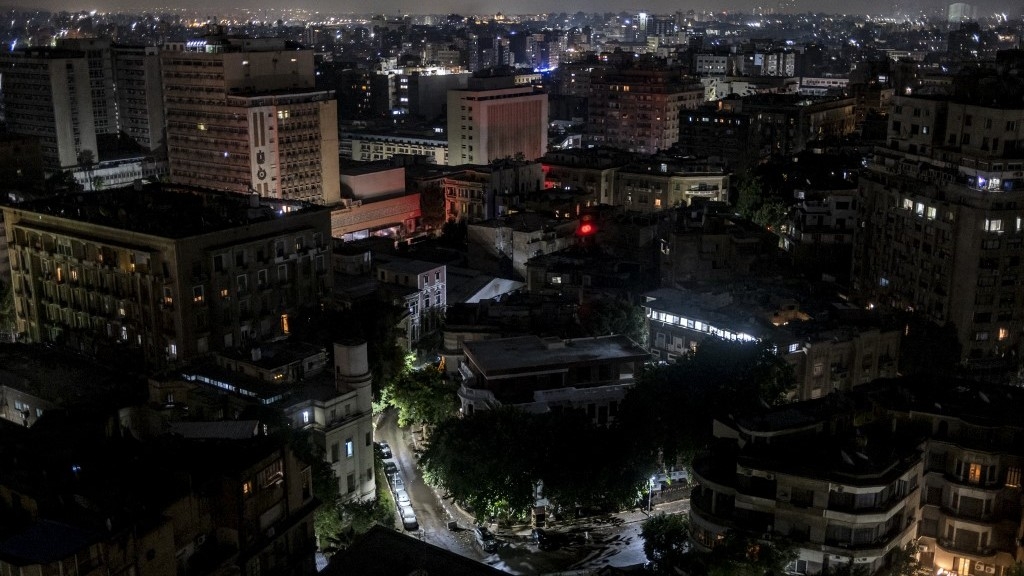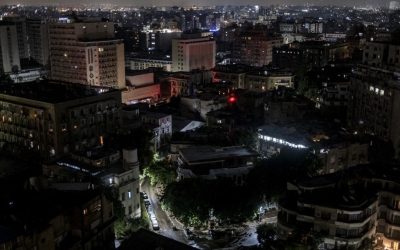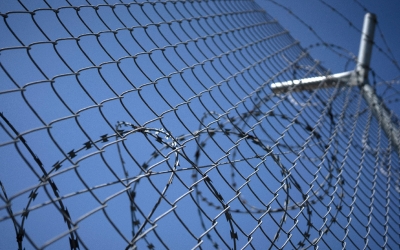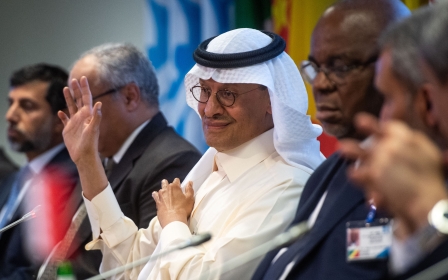Egypt is cutting electricity supply for the poor, not the rich, says report

The Egyptian government is limiting the supply of electricity to some of the poorest areas of the country as it seeks to tackle a nationwide power shortage, Human Rights Watch (HRW) said on Tuesday.
Amid soaring summer temperatures of between 40C and 50C, power cuts are lasting for around six hours in some areas, with many finding it difficult to function.
Now, the US-based HRW is warning that Egyptian authorities are imposing longer electricity cuts in rural areas of the country in order to keep the power running for longer in the larger cities.
In the greater Cairo region electricity is being cut for four hours per day. In Upper Egypt and the Delta regions it is being cut for five hours per day.
And in wealthy parts of the governorates of Cairo, Giza and Alexandria, home to military families and powerful figures, the electricity is not being cut at all, according to a local outlet.
New MEE newsletter: Jerusalem Dispatch
Sign up to get the latest insights and analysis on Israel-Palestine, alongside Turkey Unpacked and other MEE newsletters
The tourist and coastal areas have also been exempted because of the revenue they generate, according to the government.
“Egypt’s government has long demanded implicitly that Egyptians sacrifice their civil and political rights in return for economic prosperity,” said Adam Coogle, deputy director of HRW's Middle East and North Africa division.
“But electricity cuts dramatically reduce people’s ability to realise their rights, including to food, water and healthcare,” he said.
‘Forgot to switch electricity back on’
Following severe power outages in June, the Egyptian government cut electricity from street lamps as well as other services.
On 27 July, Cairo announced plans to further ration electricity until at least September. Among the measures announced was that some staff in public administrative roles would work from home at least one day a week.
While the government states that hospitals are exempt from the cuts, there have been reports of power outages even in public healthcare facilities.
When asked about why cuts in villages were lasting longer than in cities, government spokesperson Nader Saad said that “maybe the person responsible for cutting the electricity forgot to bring it back.
“Human errors occur everywhere,” Saad added, citing that there was no government plan to limit the electricity in some areas for longer than others.
The government of Abdel Fattah el-Sisi has blamed rising demand in the country for the lack of energy, though many doubt this is the full picture.
While over the past decade Egypt has become an exporter of gas, it consumed around 87 percent of the gas it produced in 2021.
In some years, demand has exceeded domestic supply. In 2022, the government drew up plans to ration electricity so as to export more gas and shore up Egypt's dire financial situation.
'Heatwave to blame'
According to officials in the country, the power cuts are a result of the energy grid being put under pressure by the climate change-fuelled heatwave, which has created a high demand for electricity to power fans and air conditioning.
On Sunday, the Ministry of Electricity and Renewable Energy said that while electricity consumption had reached record levels, it had not exceeded the nation's supply capacity.
On 17 July, electricity supply reached 34,650 megawatts, its highest ever load. The available capacity is 44,900 megawatts, with a reserve capacity of 9,800 megawatts.
Last month, according to the Egyptian media outlet Shorouk, the Egyptian government began a secret plan to deliberately reduce energy consumption in the country.
This is partly intended to force ordinary citizens to ration their electricity consumption so that the government can export more energy, according to a government insider who spoke to Shorouk.
Overall, the government is looking to reduce energy consumption by 25 percent.
Mohammed Younis, an Egypt-based energy researcher, told Middle East Eye last month that frustration at the government's handling of the energy crisis is causing widespread discontent.
“People are angry, even public figures who were neutral about the government have started to criticise the power cuts,” Younis said.
The anger has also been expressed online, with dozens of people hitting out at the electricity shortages and discussing the different ways their daily life has been affected.
Many have been using a number of different hashtags to speak about the topic on social media, and have also called on President Sisi to find a solution for the long power outages.
Middle East Eye delivers independent and unrivalled coverage and analysis of the Middle East, North Africa and beyond. To learn more about republishing this content and the associated fees, please fill out this form. More about MEE can be found here.






